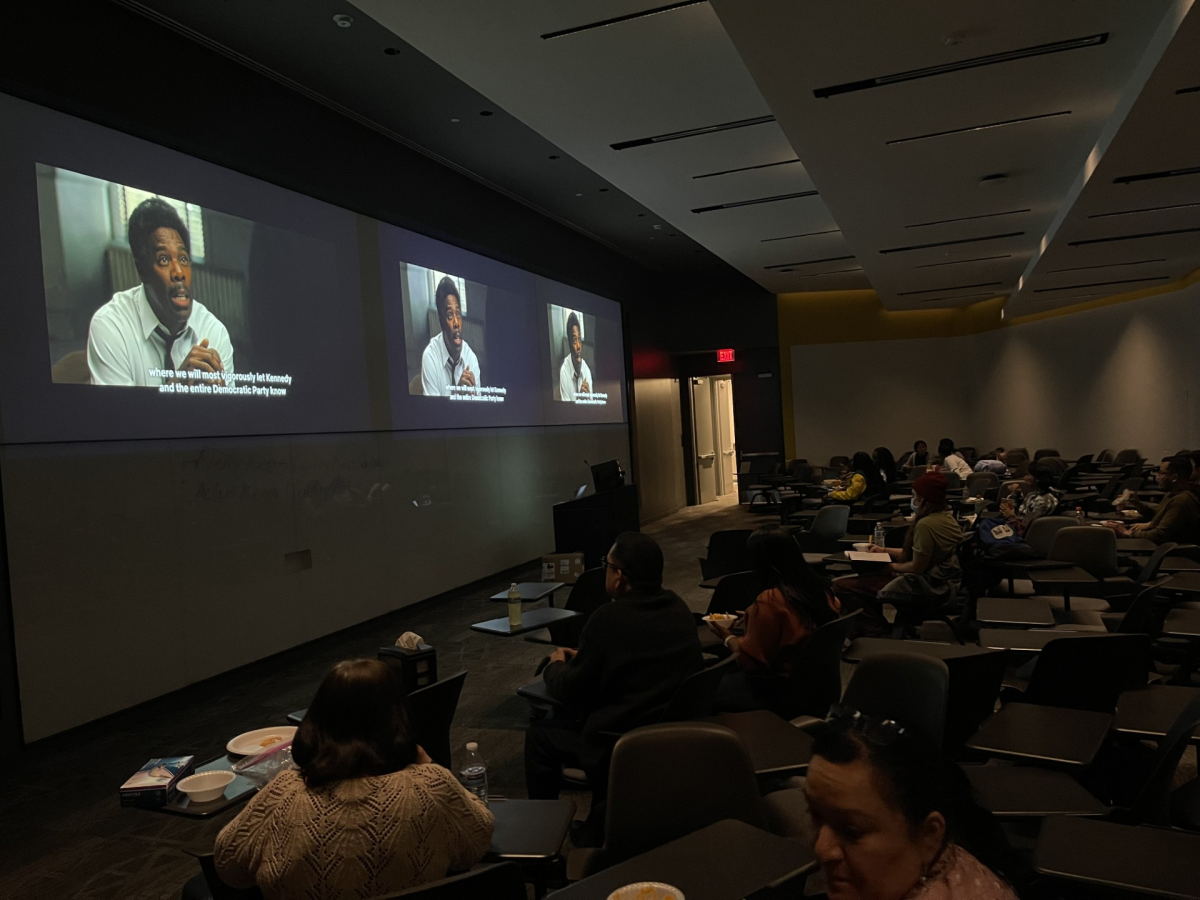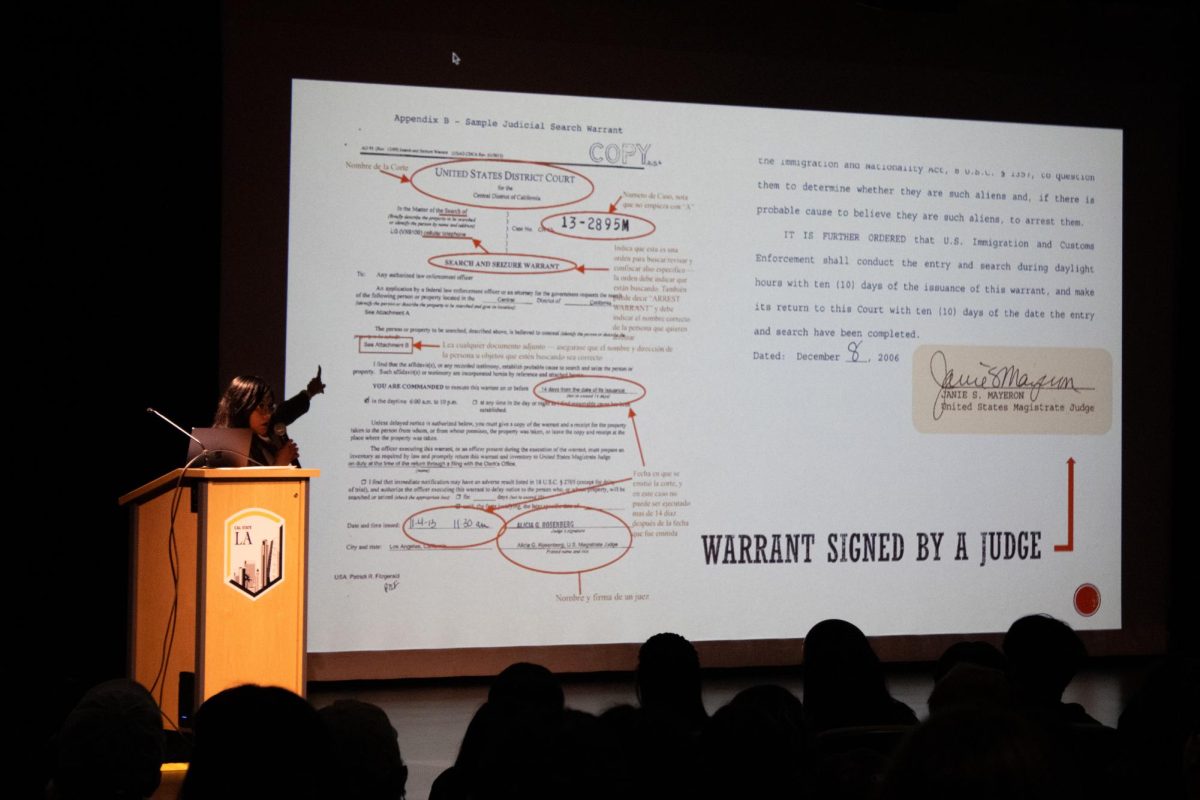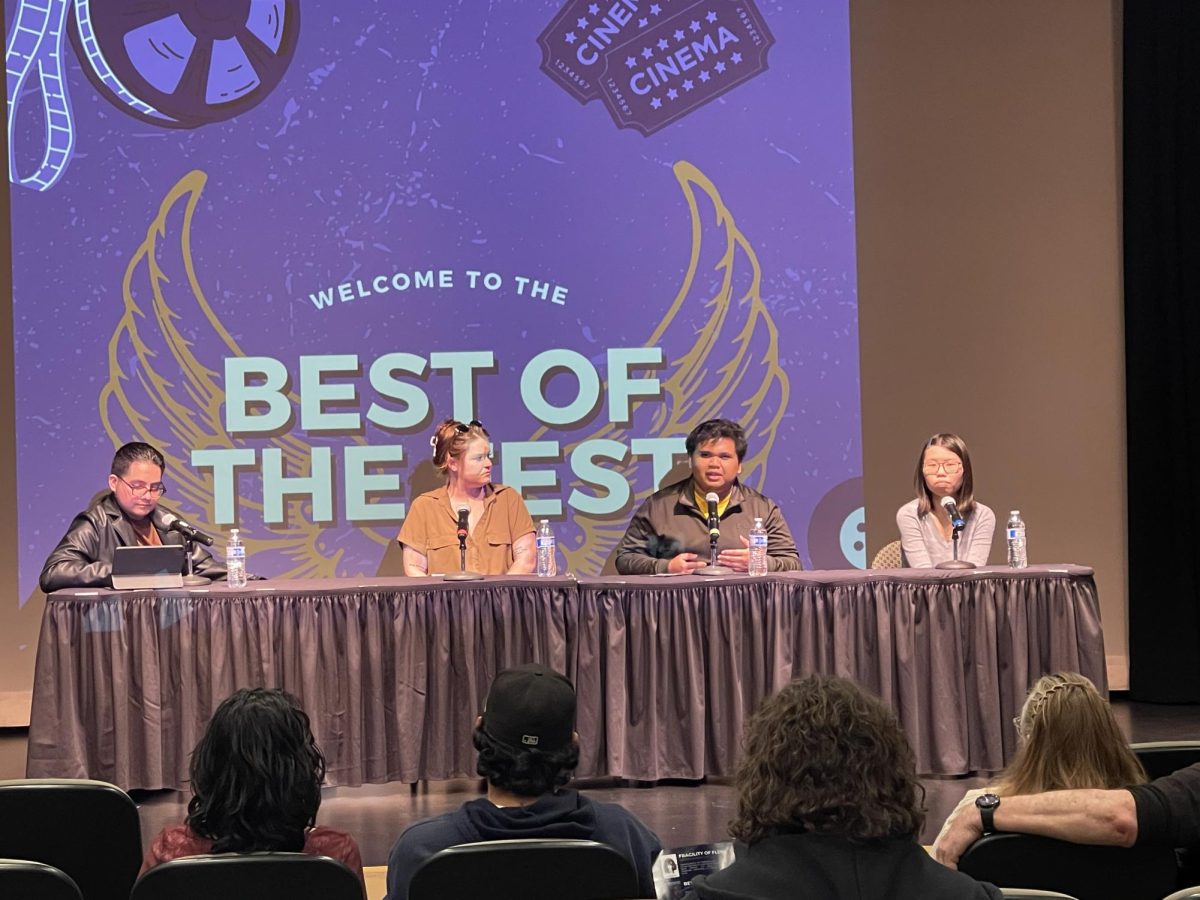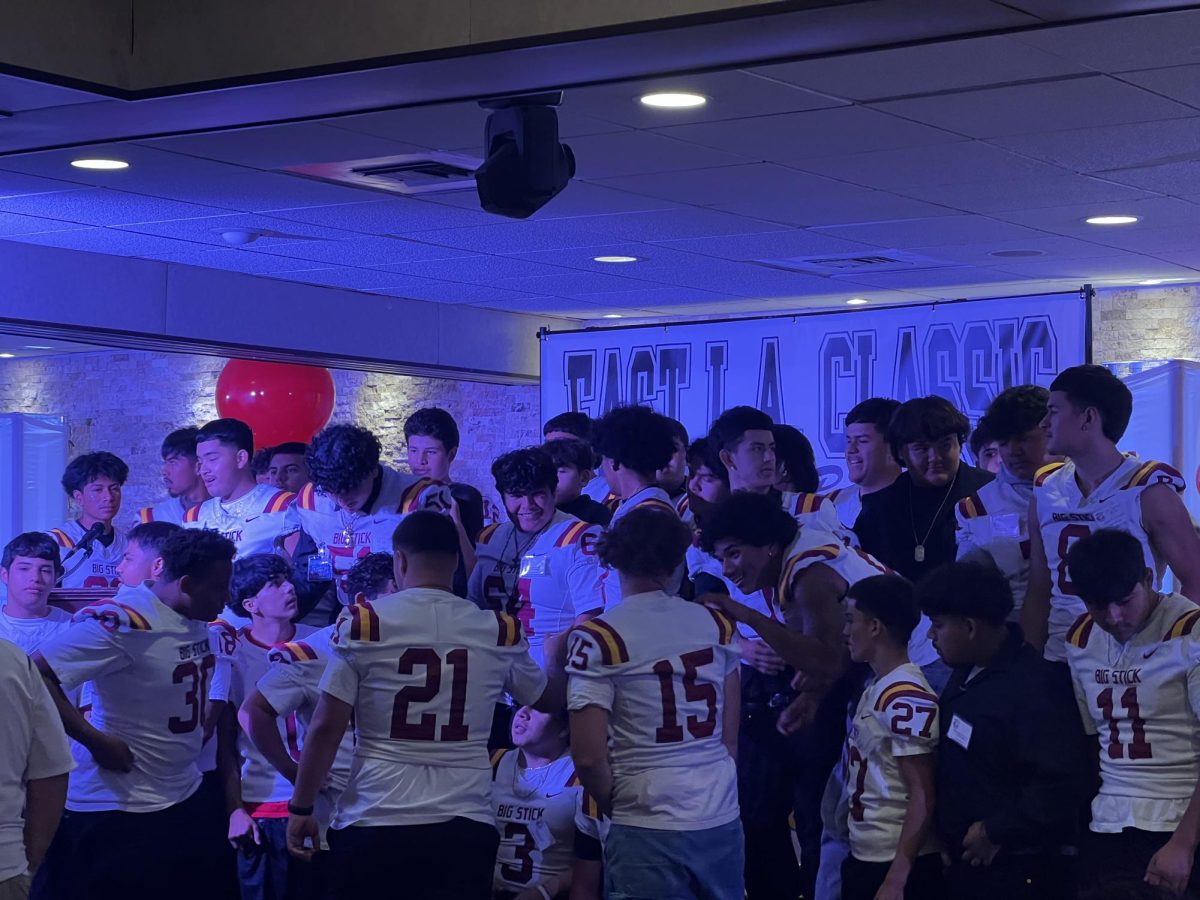As Cal State LA celebrated Black History Month, a group of staff from the Dreamers Resource Center (DRC) and The Guardian Scholar Program worked in tandem to screen “Rustin,” which stars Colman Domingo, offering a poignant narrative that intertwines his personal struggles with the broader context of the era. The film features other notable historical figures played by an A-List cast with Chris Rock as Roy Wilkins, Jeffrey Wright as Adam Clayton Powell Jr., and Audra McDonald as Ella Baker.
The film was produced by Barack and Michelle Obama’s Higher Ground and has garnered positive reviews, nominations and awards.
The biographical drama itself sheds light on the life of influential gay civil rights activist, Bayard Rustin, known for being Chief Organizer of the 1963 March on Washington. The film not only explores Rustin’s pivotal role in the civil rights movement and as key adviser of Martin Luther King Jr., but also delves into the challenges he faced due to racism, homophobia and political resistance, at times from within his own ranks.
“It was very positive; the students kept focus on the movie, and when we had Q and A after the movie, students shared positive feedback; students shared that Rustin led by example, even though he had the opportunity to go to the White House after the march, he decided to stay and clean the area because he has promised that the place will be spotless after the event,” said Rosa Heckenberg, director of the DRC.
They promoted the event on Instagram, Canvas, through programs on the student life calendar and all allies on campus. Around seven students attended in total from both programs. However, the event was open to all students on campus. Graduate student, J.T. Chestnut of the Guardian Scholars Program, navigated challenging logistics that almost halted the event.
“Getting the permission to view Rustin was a task. The licensing company that the University uses to screen films on campus did not have Rustin. I searched on Google for other higher education institutions that hosted Rustin screenings,” Chestnut said. “I got in contact with Brooklyn College and its LGBT+ Center. They gave me the info for their Netflix contact, and I got their permission. I was extremely grateful that we had the opportunity to view this powerful movie with our students.”
Leading by example was the point most touched on by staff who joined into the discussion and it reminded them that the pursuit of justice requires resilience and a collective commitment to creating positive change. At the end of the event, they stood and had the room thank Chestnut for his diligent work.
Beyond the screening of a movie with popcorn, nachos and drinks provided to students, discussions were opened about the spirit of unity and empowerment within education. The students in the audience spoke about how Rustin himself taught others about nonviolence, that it was possible after all the time put into the effort, if someone were to take the first step. How screenings like “Rustin” invite the community to engage in conversations that honor the rich tapestry of Black history and inspire a shared commitment to a more just, equitable future.





